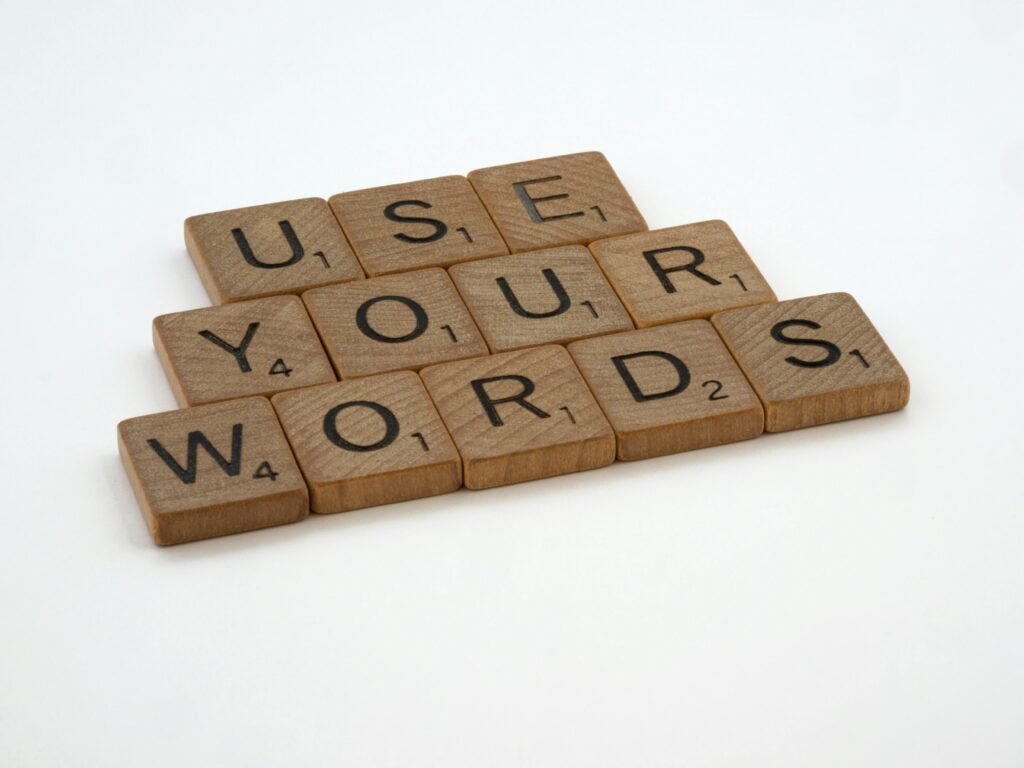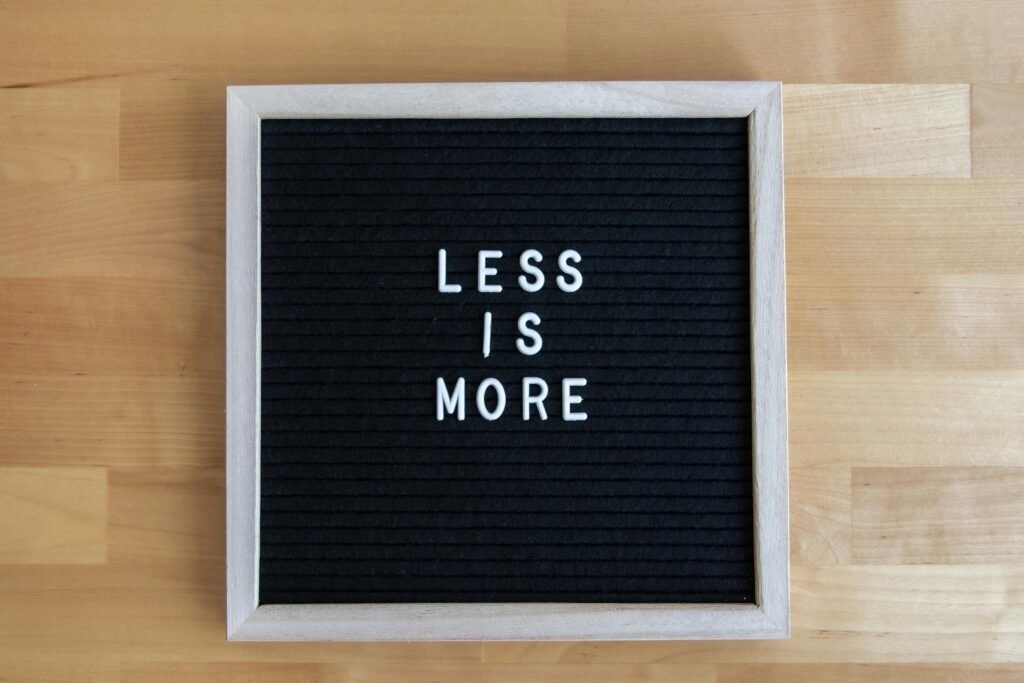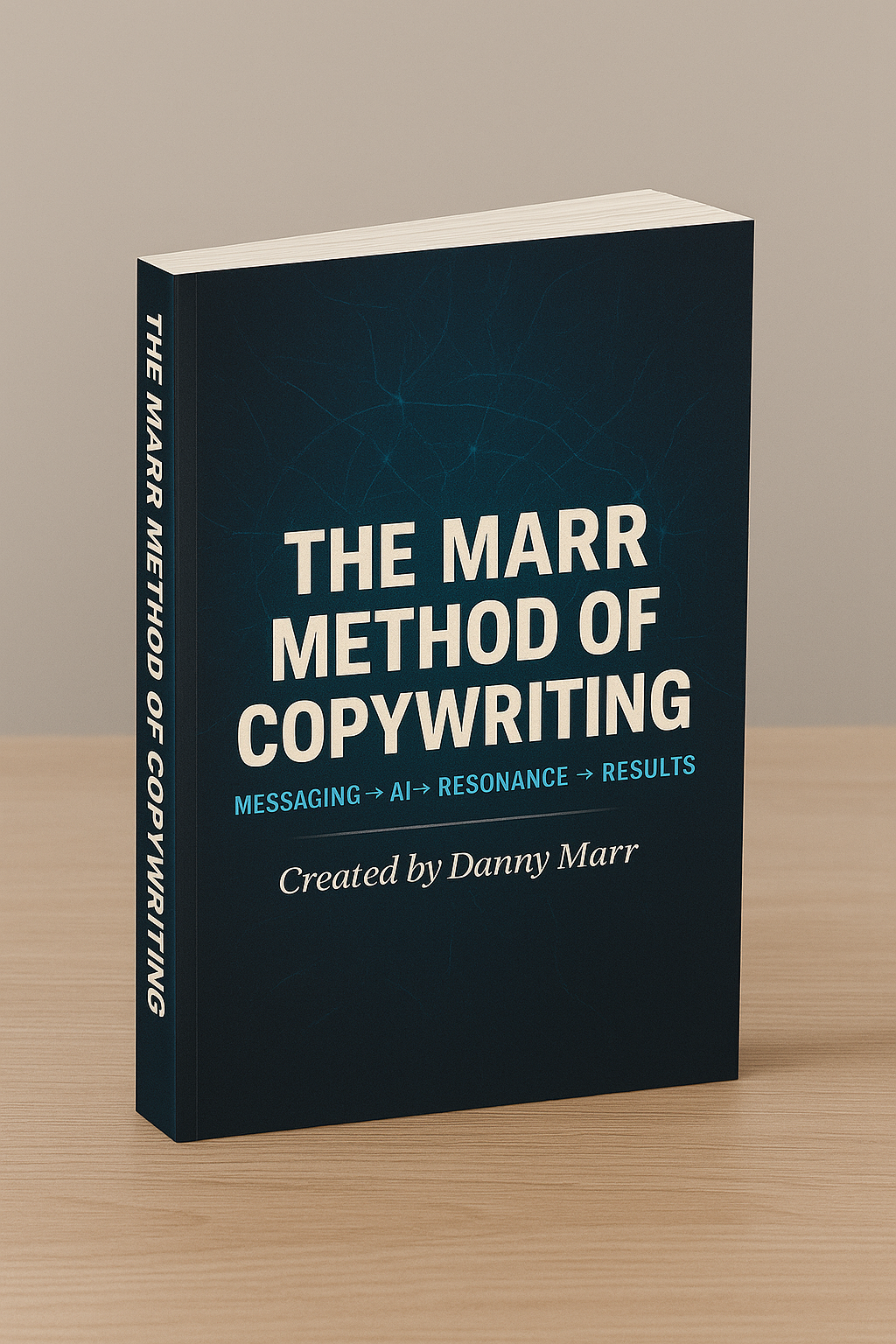
Introduction to Word Economy
With today’s rapidly evolving world, where attention spans are shorter than ever, mastering the art of concise communication is essential.
Word economy refers to the practice of crafting messages with precision, using as few words as possible to convey meaning effectively.
While this may sound simple, achieving clarity and impact in a limited word count takes intention and skill.
The need for word economy is especially apparent in copywriting.
Whether it’s a social media post, a website headline, or an email campaign, every word must work hard to grab attention and drive action.
In a sea of competing messages, being clear and succinct helps your content stand out and connect with the audience.
Unlike lengthy or overly detailed communication, concise writing respects the reader’s time while delivering a message that sticks.
But word economy isn’t just about cutting words; it’s about choosing the right ones.
Precise, powerful language ensures that your message resonates without any extra fluff.
A well crafted sentence can evoke emotion, inspire action, or leave a lasting impression, all while being brief.
Think about slogans like “Just Do It” or “Think Different.”
Their impact lies not in their length but in their simplicity and clarity.
These examples illustrate how word economy prioritizes meaningful language over excessive elaboration.
Interestingly, the principles of word economy extend beyond marketing or professional writing.
The ability to communicate effectively with fewer words can benefit day to day interactions, like composing an email, drafting a text message, or explaining a complex idea in conversation.
By cutting unnecessary details and focusing on the heart of the message, you make it easier for others to understand and engage with your point of view.
When writing concisely, the goal isn’t to strip your message down to the point of being sterile or vague.
Instead, it’s about finding balance; offering just enough information to convey meaning without overwhelming or confusing the reader.
Each word should serve a purpose and contribute to the overall clarity and strength of the message.
In this way, word economy isn’t about saying less but rather saying more with fewer words.
As we explore this topic further, you’ll discover practical ways to incorporate word economy into your writing and communication style.
From proven strategies to real world examples, learning this skill can help you not only craft better content but also become a more effective communicator in every aspect of life.
The process may require practice, but the results are worth it; both for you and your audience.
Benefits of Being Concise

Concise writing brings numerous advantages, particularly in a time where readers are pressed for time and often skim content rather than reading every word.
In fact, most readers consume only about 20% of the content on a page.
By eliminating unnecessary details, you respect the reader’s time and make your message more accessible and engaging.
Each word becomes valuable, and readers are more likely to absorb the main points of your communication.
Another significant benefit of concise writing is its ability to hold the reader’s attention.
Today’s audience is bombarded with a constant flow of information, making it harder than ever to capture and maintain interest.
However, a well crafted, succinct message avoids overwhelming the audience, allowing them to focus on what matters most.
When you deliver your ideas with clarity and precision, your content becomes easier to follow and more memorable.
Concise writing also makes communication more persuasive.
By focusing on essential points and avoiding unnecessary elaboration, your arguments appear stronger and more credible.
Readers are more likely to trust and act on messages that are clear and well structured.
This is especially important in copywriting, where every word plays a critical role in driving engagement or inspiring action.
Beyond reader engagement, writing concisely benefits the writer as well.
Stripping down your message to its core ideas forces you to clarify your own thoughts and intentions.
This process can reveal redundancies or unfocused ideas, allowing you to refine and sharpen your overall message.
The result is communication that feels purposeful and impactful.
Conciseness is particularly powerful when applied to digital platforms.
With limited attention spans and quick scrolling habits, online readers gravitate toward content that gets to the point without unnecessary filler.
Whether it’s a blog post, email, or social media caption, concise communication can increase the likelihood of your message being read and understood.
For example, research shows that headlines with 10–13 words are known to attract twice as much site traffic compared to longer ones.
This demonstrates how fewer words, when chosen carefully, can deliver a significant impact.
By writing concisely, you also create room for creativity.
Instead of overwhelming your audience with unnecessary information, you can focus on crafting words that resonate and inspire.
Whether you’re writing for professional purposes or personal communication, honing this skill can help you create messages that are not only efficient but also powerful and compelling.
Examples of Effective Word Economy

Examples of word economy can be found in many areas, but advertising and copywriting often demonstrate this skill best.
Short, memorable phrases can deliver a brand’s message with clarity and impact.
These compact yet engaging titles grab attention while conveying key information effectively. Similarly, slogans like Nike’s “Just Do It” or Apple’s “Think Different” are perfect examples of how fewer words can leave a powerful impression.
Another excellent demonstration of word economy comes from public speaking. Abraham Lincoln’s Gettysburg Address, though only about 270 words, remains one of the most influential speeches in American history.
Instead of overwhelming his audience with length, Lincoln distilled his message into a concise and compelling statement on equality, freedom, and sacrifice.
In a similar vein, Martin Luther King Jr.’s “I Have a Dream” speech uses carefully chosen words to create an unforgettable call for civil rights, showing how brevity can amplify impact.
Social media platforms also highlight the importance of word economy, as users are often restricted by character limits.
Crafting a tweet, for instance, forces writers to express their ideas succinctly while still being engaging.
The success of viral posts often lies in their ability to be both short and meaningful, a reminder that impactful communication doesn’t need to be lengthy.
Marketers and individuals alike benefit from mastering this balance, especially when every word counts.
Outside of professional contexts, examples of word economy appear in everyday writing, like emails or text messages.
Think about how a clear, direct email saves time for both the writer and the reader.
Instead of including unnecessary details, focusing on the essential points ensures the message gets across quickly and effectively.
This principle also applies to text messages, where brevity often improves clarity and avoids miscommunication.
Word economy is especially valuable in online writing, where readers are constantly scrolling through endless streams of content.
Crafting concise, impactful sentences ensures your message stands out amidst the noise.
The same principle applies to social media captions or blog posts, where clear, concise communication encourages more engagement and better retention.
Linking Minimalism in Writing and Lifestyle

The connection between minimalism in writing and minimalism in lifestyle is rooted in the idea of eliminating excess to focus on what truly matters.
Both practices encourage intentional choices; whether it’s selecting words to communicate effectively or prioritizing what adds value to your daily life.
This shared principle fosters clarity, efficiency, and a sense of purpose.
When you declutter your writing, you remove distractions that might dilute your message.
Similarly, when you streamline your physical and mental space, you free up energy to focus on your priorities.
In both cases, cutting out the unnecessary makes room for what is meaningful, whether that’s a powerful idea or a sense of calm and focus.
Minimalism in writing is about intentionality; choosing every word with care to ensure it serves a purpose.
Likewise, adopting a minimalist lifestyle involves carefully curating possessions, activities, or commitments that align with your values.
This approach encourages mindfulness, requiring you to be deliberate about what you include and exclude, whether on the page or in your daily routine.
The results can be liberating. With fewer distractions, you can channel your energy toward what truly resonates with you, fostering both productivity and satisfaction.
Consider how clutter, whether physical or verbal, can overwhelm the senses.
A room filled with unnecessary items feels chaotic, just as a piece of writing overloaded with redundant information can confuse readers.
Both situations create noise that detracts from the core message or experience.
Simplifying what surrounds you; whether it’s the words in a sentence or the objects in your home, allows for better focus and appreciation of what’s essential.
Minimalist writing and living also share a commitment to quality over quantity.
Instead of striving to say more or accumulate more, the focus shifts to doing more with less.
A single well crafted sentence can communicate more effectively than a paragraph of filler, just as a thoughtfully arranged living space can bring more joy than one crowded with excess.
The practice of minimalism in both writing and life encourages self awareness and intentionality.
By reflecting on what is truly important, you can make deliberate choices that align with your goals.
Whether it’s choosing the exact words to convey a message or deciding which habits and possessions add value to your day, the underlying principle is the same: simplicity creates clarity and purpose.
Strategies for Writing Concisely

Writing concisely requires practice, but the right strategies can make it easier to master.
One of the most effective approaches is to edit with intention.
After drafting, revisit your text to identify and remove any unnecessary words or phrases.
Each word should have a clear purpose and contribute directly to your message.
Being mindful of word choice and trimming excess language can make your writing cleaner and more impactful.
Using active voice is another key strategy for concise writing.
Active sentences are direct and to the point, making them easier to understand.
For example, instead of writing “The report was written by the team,” opt for “The team wrote the report.”
This adjustment not only reduces word count but also improves clarity and engagement.
Formatting can also help streamline your writing and make it more reader friendly.
Breaking up dense text with short paragraphs, bullet points, or numbered lists enhances readability and ensures your key points don’t get lost.
These tools not only organize your content but also guide readers through your message more effectively.
Being mindful of spelling and grammar is crucial for concise communication.
74% of web readers pay attention to the quality of spelling and grammar.
Mistakes can distract from your message and undermine your credibility, so always proofread your work.
Using clear, grammatically correct sentences ensures that your writing feels polished and professional.
Another helpful technique is to focus on one idea per sentence or paragraph.
Trying to convey too much at once can lead to confusion or overly long sentences.
Simplify your structure by prioritizing the most important points and breaking them into smaller, manageable chunks.
This approach not only keeps your writing concise but also helps your audience process and retain your message more easily.
When crafting headlines or titles, keep in mind that shorter, well worded phrases are more effective.
Aim for clarity and relevance to capture attention quickly.
A concise headline tells readers exactly what to expect and encourages them to engage with your content.
Consider how you can make an immediate impact while staying true to the core of your message.
Finally, practice writing concisely by challenging yourself to reduce word count without losing meaning.
Take a paragraph or sentence and see how much you can trim while retaining its clarity and intent.
This exercise trains you to identify unnecessary words and sharpen your overall writing skills.
Over time, you’ll find it easier to communicate your ideas with brevity and precision.
Conclusion: Less is More

When we focus on simplifying our communication, we open the door to greater clarity and connection.
Word economy is not just about writing fewer words; it’s about ensuring that every word you choose adds value to your message.
This principle mirrors the idea of intentionality found in minimalist lifestyles, where eliminating excess leads to more meaningful experiences.
In writing, cutting unnecessary details allows your ideas to shine.
Stripping away what doesn’t serve your purpose makes your message more impactful and accessible.
Similarly, paring down in other areas of life; like decluttering your schedule or home, frees up space for what truly matters.
Both practices challenge us to focus on essentials, bringing a sense of purpose to how we communicate and live.
One of the most rewarding aspects of concise writing is the opportunity to build stronger connections with your audience.
Respecting their time by delivering clear, straightforward messages creates trust and engagement.
Instead of overwhelming readers with too much information, you provide them with what they need to know in a way that is both efficient and meaningful.
This respect extends beyond professional writing; even in personal communication, choosing your words carefully can lead to better understanding and fewer misunderstandings.
Applying the “less is more” mindset can also bring balance and focus to your creative process.
When you avoid unnecessary elaboration, you leave room for powerful ideas to emerge.
Writing concisely often requires a deeper reflection on your goals and priorities, helping you uncover the core of your message.
Over time, this approach sharpens your ability to express yourself with purpose and confidence.
Minimalism in writing and life also reinforces the importance of quality over quantity.
Instead of filling your text; or your days with excess, you learn to make intentional choices that resonate.
A well chosen phrase can evoke a stronger response than an overly detailed paragraph, just as a single meaningful experience can outweigh a series of superficial ones.
This perspective encourages a mindful approach to both communication and daily life, helping you achieve more by focusing on what truly counts.
By embracing the art of brevity, you not only simplify your writing but also refine your thought process.
When you take the time to edit and condense your work, you strengthen your message and boost its impact.
Writing concisely doesn’t mean sacrificing depth or creativity; it means presenting your ideas in a way that captures attention and inspires action.
As you put these principles into practice, remember that simplicity isn’t about doing less; it’s about doing more with less.
Stripping away the non-essential doesn’t dilute your message or life; it enhances them.
When your communication is clear and intentional, it leaves a lasting impression.
Likewise, when your lifestyle aligns with your priorities, it creates space for growth, productivity, and fulfillment.
Whether you’re drafting an email, crafting a marketing campaign, or reorganizing your day to day activities, the “less is more” approach can help you achieve your goals with clarity and purpose.
Writing concisely and living minimally share the same foundation: making deliberate choices to amplify what truly matters.
In both cases, the result is a clearer path forward and a deeper sense of meaning.
Embracing the art of word economy is a skill that evolves with practice, and its benefits go beyond the written word.
As you refine this ability, you’ll find it influencing other areas of your life, enhancing your relationships, productivity, and overall sense of balance.
Keep striving for simplicity and purpose; your audience, and your future self, will thank you.
💡 Quick question before you go:
Are you using AI in your copywriting — or letting it use you?
Take the 2-minute quiz to uncover your Copywriting + AI Style, get your personalized analysis, and receive a free copy of The Marr Method of Copywriting.
 👉 Take the Quiz — Unlock Your Style
👉 Take the Quiz — Unlock Your Style
